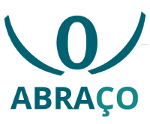
Physiology and assessment as low-hanging fruit for education overhaul
May 29, 2018
Sidarta Ribeiro, Natália Bezerra Mota, Valter da Rocha Fernandes, Andrea Camaz Deslandes, Guilherme Brockington and Mauro Copelli
Physiology and assessment constitute major bottlenecks of school learning among students with low socioeconomic status. The limited resources and household overcrowding typical of poverty produce deficits in nutrition, sleep, and exercise that strongly hinder physiology and hence learning. Likewise, overcrowded classrooms hamper the assessment of individual learning with enough temporal resolution to make individual interventions effective. Computational measurements of learning offer hope for low-cost, fast, scalable, and yet personalized academic evaluation. Improvement of school schedules by reducing lecture time in favor of naps, exercise, meals, and frequent automated assessments of individual performance is an easily achievable goal for education.
The whole paper is available here.
Share on Twitter Share on Facebook| NeuroCineMat |
|---|
|
Featuring this week: |
| Newsletter |
|---|
|
Stay informed on our latest news! |
| Follow Us on Facebook |
|---|




